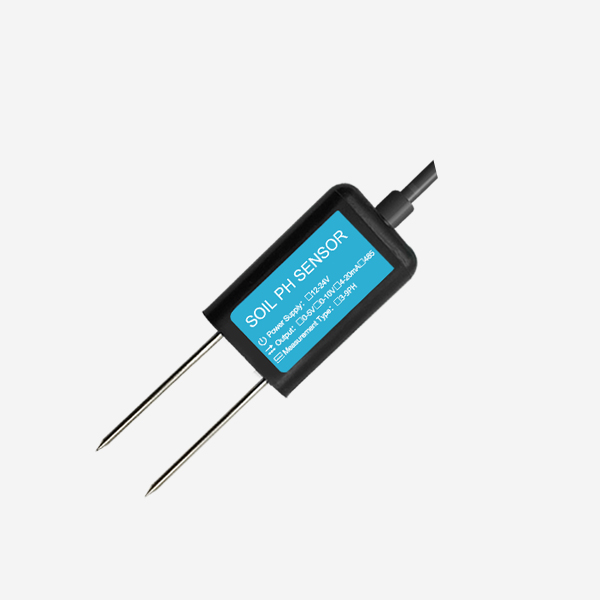In recent years, the development of the soil pH sensor change the way that the soil pH monitoring. Provide real-time data to enable farmers to optimize land management practices.This article explores the significance of soil pH sensors, their key features and capabilities, the benefits and applications they offer, as well as the challenges and future directions in this field.
Significance of Soil pH Sensors

Soil pH, which measures the acidity or alkalinity of soil, is a critical parameter that directly influences plant growth, nutrient availability, and the activity of soil microorganisms. Different plants have specific pH requirements for optimal growth, and soil pH can impact the availability of essential nutrients such as nitrogen, phosphorus, and potassium. Monitoring soil pH is essential for agricultural practices, as it enables farmers to make informed decisions regarding crop selection, fertilizer application, and soil amendment strategies. Additionally, in environmental management, monitoring soil pH is crucial for assessing the impact of human activities, such as industrial pollution or urban development, on natural ecosystems. Soil pH sensors have emerged as indispensable tools for accurately and efficiently monitoring soil pH, providing real-time data that enables proactive management and decision-making.
Key Features and Capabilities
Soil pH sensor offer a range of features and capabilities that make them invaluable for agricultural and environmental applications. Some of the key features include:

Real-time Monitoring: Soil pH sensors provide continuous, real-time monitoring of soil pH levels, allowing for immediate detection of changes and trends in soil acidity or alkalinity.
Precision and Accuracy: Advanced soil pH sensors are designed to provide precise and accurate measurements, ensuring that farmers and environmental managers have reliable data for decision-making.
Multi-Parameter Monitoring: Many soil pH sensors are capable of measuring multiple parameters in addition to pH, such as soil temperature, moisture content, and conductivity, providing a comprehensive understanding of soil conditions.
Data Logging and Connectivity: Soil pH sensors are equipped with data logging capabilities and connectivity options, enabling the collection, storage, and transmission of soil pH data to centralized systems or mobile devices for analysis and interpretation.
Integration with Precision Agriculture Technologies: Soil pH sensors can be integrated with precision agriculture technologies, such as variable rate application systems, enabling targeted and efficient application of fertilizers and soil amendments based on real-time soil pH data.
Benefits and Applications
The adoption of soil pH sensors offers a range of benefits and applications in agricultural and environmental management. Some of the key advantages and applications include:

Precision Agriculture:
Soil pH sensor enable precision agriculture practices by providing farmers with accurate data to optimize fertilizer application, lime treatments, and crop selection based on specific soil pH requirements.
Improved Crop Yield and Quality:
Monitoring soil pH using sensors helps farmers to create optimal growing conditions for crops, leading to improved yield, quality, and overall farm productivity.
Environmental Monitoring and Remediation:
Soil pH sensor are in environmental monitoring and remediation efforts to assess the impact of industrial activities, mining operations, or urban development on soil quality and to guide remediation strategies.
Sustainable Land Management:
By enabling precise monitoring of soil pH, sensors support sustainable land management practices, helping to maintain soil health, prevent acidification, and minimize environmental degradation.
Research and Education:
Soil pH sensors play a vital role in research and education by providing valuable data for scientific studies on soil health, ecosystem dynamics, and the impact of land use practices on soil pH and fertility.
Future Directions and Innovations
The future of soil pH sensor holds great promise, driven by ongoing technological advancements and innovative applications. The integration of soil pH sensors with autonomous agricultural machinery and drone-based monitoring systems will further enhance the efficiency and precision of soil pH moni
